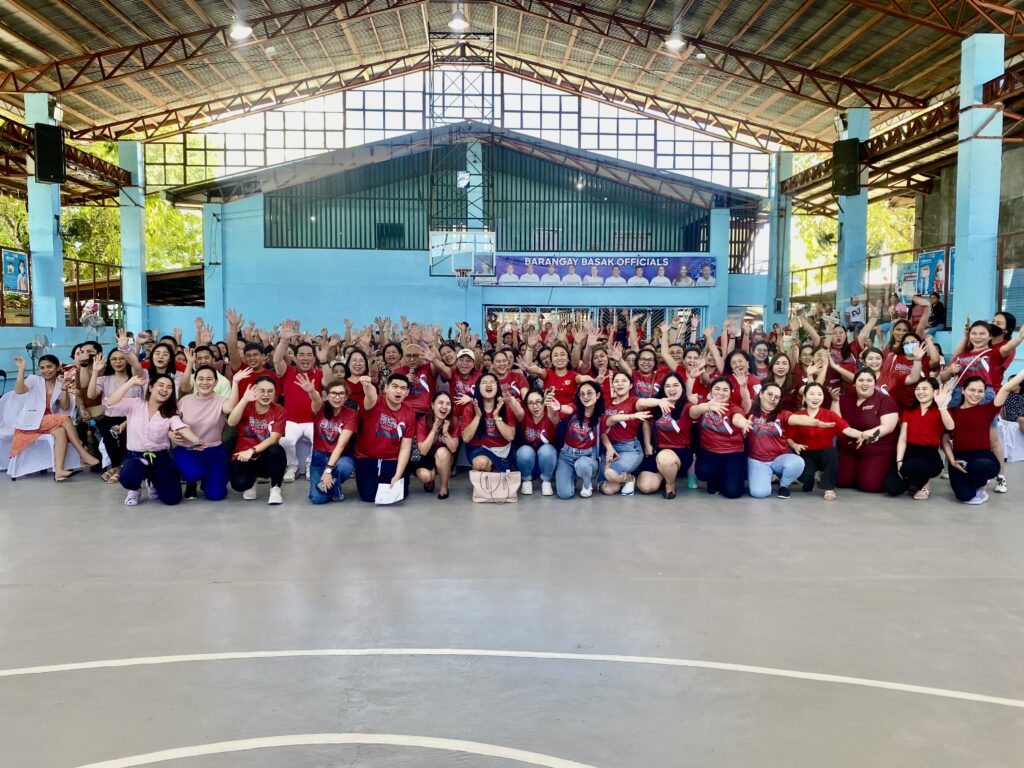
Participants of the cervical cancer and the human papillomavirus (HPV) in Lapu-Lapu City posed for a photo during the event last May. | Contributed photo
CEBU CITY, Philippines — The local government of Lapu-Lapu City recently launched a massive campaign about cervical cancer and the human papillomavirus (HPV).
The campaign, which took place during the Cervical Cancer Awareness Month in May, was spearheaded by the Department of Health (DOH), Lapu-Lapu City Government, the Department of Education (DepEd), and other representatives from a private firm in the medical field.
According to a press statement sent to CDN Digital, one of the major events during the campaign was a lecture about cervical cancer, attended by healthcare professionals and members of the Lapu-Lapu City’s Parent-Teacher Association at Barangay Basak.
READ:
Cervical cancer coverage: A top priority of PhilHealth
DOH-7 assures availability of HPV vaccine in Central Visayas
With a national action plan, cervical cancer could be a thing of the past
Dr. Pherdes Galbo, a gynecological oncologist, said that last May 18, free HPV vaccinations were provided to children aged nine to 14 years old at the Barangay Basak Gym; and on May 26, they conducted a free cervical cancer screening at the city’s Hoops Dome.
The campaign was able to gather around 300 participants from the said barangay.
Importance of cancer prevention
Moreover, Dr. Carmina Alferez, an OBGYN, emphasized during her talk, the importance of cancer prevention and highlighted the significance of HPV vaccination in preventing cervical cancer, noting that it is one of the few cancers that can be prevented.
Alferez also encouraged the participants to take proactive steps in cancer prevention.
“If there is a vaccine that can save my sister, mother, and father, I have already done it,” Alferez said as part of her sharing her personal experience with cancer in her family.
She also acknowledged the challenges of persuading the public to get vaccinated, as many remain unaware of the benefits. Another problem is the lack of access to vaccines.
The HPV vaccines are provided free of charge to children, both male and female, between the ages of nine and 14. They receive two doses, spaced six months to a year apart, at no cost.
Older children over the age of 15 can still receive the vaccine for a fee, but they require three doses with a two-month gap after the first dose and a six-month interval before the final dose.
What is HPV?
According to the health experts, HPV is a common virus, particularly among individuals who are sexually active and have multiple partners. While 30 to 80 percent of people may contract the virus, not all cases lead to cancer. In the Philippines, 12 women lose their lives daily due to cervical cancer caused by HPV.
To prevent HPV infection, Alferez recommended strengthening the immune system through a healthy diet, regular exercise, avoiding smoking and excessive alcohol consumption, and undergoing routine medical check-ups for pap smears, visual inspections using acetic acid, or HPV DNA (deoxyribonucleic acid) tests.
Vaccination against HPV is also crucial, as the vaccines have undergone rigorous safety and efficacy testing by global health experts to ensure their suitability for public use, she said.
READ:
Herbosa to seek DBM assistance to upgrade HPV vaccination budget
Alferez said that it is important for children to receive the HPV vaccine before becoming sexually active, as evidenced by the country’s youngest teen pregnancy at just 10 years old; and added that the only reported side effects of the HPV vaccine are minor inflammation, fever, and dizziness.
Alferez added that the HPV vaccine is not only beneficial for females but also for males to protect against HPV-related diseases, including cervical cancer and other forms of cancers.
Dr. Jera Armendarez, head of the Non-Communicable Disease Section at DOH-7 said in a previous report that the vaccine for HPV can also be accessed for free at rural health units (RHUs).
However, if patients choose to avail themselves of it in private hospitals, they would need to pay more or less than P3,000.